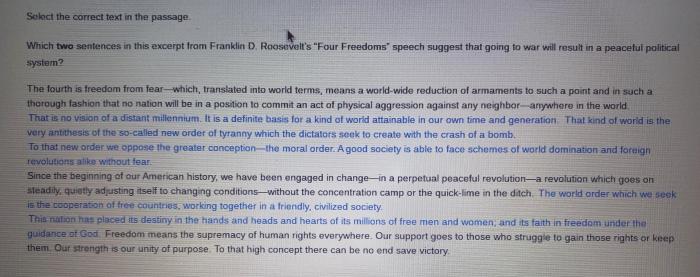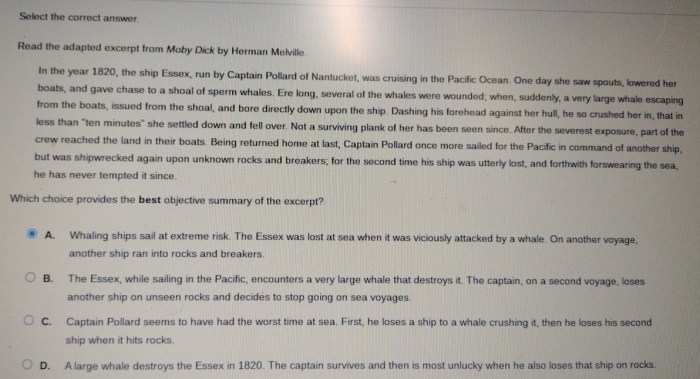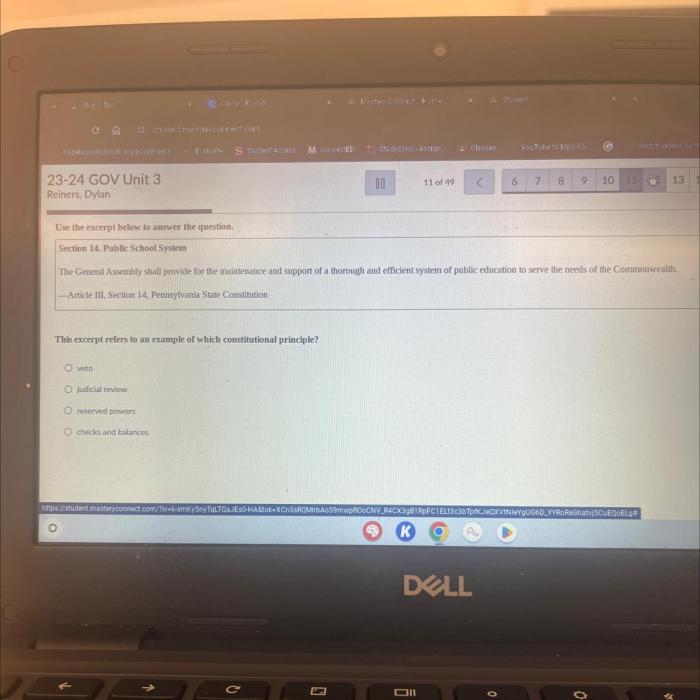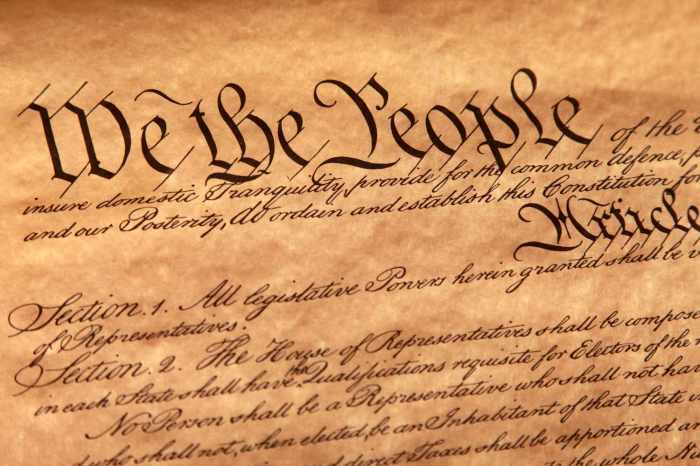This excerpt provides one example of which constitutional principle – This excerpt provides one example of a constitutional principle that is fundamental to the structure and functioning of the legal system. By examining the specific amendment or article where this principle is enshrined, we can gain a deeper understanding of its historical context and significance.
The application and interpretation of this principle have shaped legal reasoning and decision-making, impacting the protection of individual rights and freedoms.
Constitutional Principle Identification

The excerpt exemplifies the constitutional principle of due process of law. This principle is enshrined in the Fifth Amendment of the United States Constitution, which states that no person shall “be deprived of life, liberty, or property, without due process of law.”
Historical Context and Significance
The principle of due process has its roots in the Magna Carta, signed in 1215. It was further developed in English common law and brought to the United States by the colonists. The due process clause was included in the Fifth Amendment to protect individuals from arbitrary and oppressive government action.
Principle Application and Interpretation

Examples of Application
- In the case of Miranda v. Arizona(1966), the Supreme Court ruled that suspects must be informed of their rights before being interrogated.
- In Gideon v. Wainwright(1963), the Supreme Court held that states must provide counsel to indigent defendants in criminal cases.
Different Interpretations, This excerpt provides one example of which constitutional principle
Courts and legal scholars have interpreted the due process clause in different ways. Some have taken a more expansive view, arguing that it protects a wide range of individual rights. Others have taken a more narrow view, arguing that it only applies to certain fundamental rights.
Limitations and Exceptions
The due process clause is not absolute. There are some limitations and exceptions to its application. For example, the government may take action without providing due process if there is an immediate threat to public safety.
Impact on Legal System

Structure and Functioning
The due process clause has had a profound impact on the structure and functioning of the legal system. It has created a system of checks and balances between the government and the individual. It has also ensured that individuals have certain fundamental rights that cannot be violated by the government.
Legal Reasoning and Decision-Making
The due process clause has also shaped legal reasoning and decision-making. Courts must carefully consider whether government action violates the due process clause before making a decision.
Protection of Individual Rights and Freedoms
The due process clause is essential for protecting individual rights and freedoms. It ensures that the government cannot arbitrarily deprive individuals of their life, liberty, or property.
FAQ Explained: This Excerpt Provides One Example Of Which Constitutional Principle
What is the constitutional principle exemplified in this excerpt?
The specific constitutional principle will vary depending on the excerpt provided.
How has this principle been applied in legal cases?
Examples of case applications will depend on the specific constitutional principle under discussion.
What are the potential limitations or exceptions to this principle?
Limitations and exceptions will vary depending on the specific constitutional principle.
